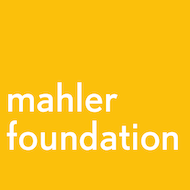- Chronology: Year 1892
- Location: Stadttheater
- Program: Eugen Onegin, Pjotr Iljitsj Tchaikovsky (1840-1893)
- Conductor: Gustav Mahler (1860-1911)
- Orchestra: Hamburg Stadttheater Orchestra
- Soloists: Wilhelm Cronberger (1858-1926), tenor.
- Stage design:
- Notes: Gustav Mahler conducts a performance of Eugen Onegin by Pjotr Iljitsj Tchaikovsky (1840-1893) (51) in Hamburg before an audience which includes the composer. Pjotr Iljitsj Tchaikovsky (1840-1893) writes to his nephew, “The conductor here is not the usual ilk, but a man of genius who would give his life to conduct the premiere.
Eugene Onegin (Russian: ??????? ??????, Yevgény Onégin), Op. 24, is an opera (“lyrical scenes”) in 3 acts (7 scenes), composed by Pyotr Ilyich Tchaikovsky. The libretto, organised by the composer himself, very closely follows certain passages in Alexander Pushkin’s novel in verse, retaining much of his poetry. Tchaikovsky’s friend Konstantin Shilovsky contributed M. Triquet’s verses in Act 2, Scene 1, while Tchaikovsky himself arranged the text for Lensky’s arioso in Act 1, Scene 1, and almost all of Prince Gremin’s aria in Act 3, Scene 1.
Eugene Onegin is a well-known example of lyric opera, to which Tchaikovsky added music of a dramatic nature. The story concerns a selfish hero who lives to regret his blasé rejection of a young woman’s love and his careless incitement of a fatal duel with his best friend.
The opera was first performed in Moscow in 1879. There are several recordings of it, and it is regularly performed. The work’s title refers to the protagonist.
In May 1877, the opera singer Yelizaveta Lavrovskaya spoke to Tchaikovsky about creating an opera based on the plot of Pushkin’s verse novel Eugene Onegin. At first this idea seemed wild to the composer, according to his memoirs. Tchaikovsky felt that the novel wasn’t properly strong in plot – a dandy rejects a young country girl, she successfully grows into a worldly woman, he tries to seduce her but it is too late. The strength of the novel resided in its character development and social commentary, as well as in the beauty of its literary delivery. Soon enough however and after a sleepless night, Tchaikovsky came to embrace the idea. He was soon growing excited about the suggestion and created the scenarios in one night before starting the composition of the music.
Tchaikovsky, with some minor involvement by Konstantin Shilovsky, used original verses from Pushkin’s novel and chose scenes that involved the emotional world and fortunes of his heroes, calling the opera “lyrical scenes.” The opera is episodic; there is no continuous story, just selected highlights of Onegin’s life. Since the original story was so well known, Tchaikovsky knew his audience could easily fill in any details that he omitted. A similar treatment is found in Puccini’s La bohème. The composer finished the opera by January 1878.
Performance history
Tchaikovsky worried whether the public would accept his opera, which lacked traditional scene changes. He believed that its performance required maximum simplicity and sincerity. With this in mind, he entrusted the first production to the students of the Moscow Conservatory. The premiere took place on 29 March (17 March O.S.) 1879 at the Maly Theatre, Moscow, conducted by Nikolai Rubinstein, with set designs by Karl Valts (Waltz).
Two years later the first performance at the Bolshoi Theatre in Moscow took place on 23 January (11 January O.S.) 1881 with conductor Eduard Nápravník.
Outside Russia the initial reception was lukewarm, and it was slow to conquer other European cities, being seen as a Russian curiosity. The first performance outside Russia took place on 6 December 1888 in Prague, conducted by Tchaikovsky himself, although the rehearsals had been the responsibility of Adolf ?ech. It was sung in Czech and translated by Marie ?ervinková-Riegrová.
The first performance in Hamburg, on 19-01-1892, was conducted by Gustav Mahler (1860-1911), in the composer’s presence. Tchaikovsky was applauded after each scene and received curtain calls at the end. He attributed its success to Mahler, whom he described as “not some average sort, but simply a genius burning with a desire to conduct“.
The first performance in England took place on 17 October 1892 at the Olympic Theatre in London with Henry J. Wood conducting. This performance was sung in English, to a text translated by H. S. Edwards.
Vienna first saw Eugene Onegin on 19-11-1897, conducted by Gustav Mahler (1860-1911).
The United States premiere was given on 24 March 1920 at the Metropolitan Opera in New York City. The opera was sung in Italian.
